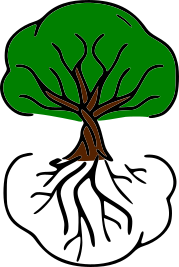In Literature Appetizer, Ben gives you just a taste of a book. Not meant to replace the full meal, this is meant to whet your appetite. Bon appetit!
Imagine yourself walking along your favorite beach. The sun is high in the sky, breeze easy, and the air temperature just right. You continue to walk to your preferred relaxation spot, when you come upon a pile of trash. Now it is common for trash to wash up, but you notice something different. Not too big, about the size of your fist. And bright yellow...is that...a duck?
Photo courtesy of the Mother Nature Network
At the turning of the millennium, this experience was shared among thousands of people across the world. Beaches around the Pacific, and even in the northern Atlantic were being visited by these bath-tub voyagers.
In January of 1992, a large shipping container traveling from Hong Kong to the US capsized in a massive storm. This happens, but what was unique was one of the items being shipped: 28,800 bath toys. Our global currents sent these toys on a journey bigger than they could imagine.
When the first ducks were being found, there was little story about them. But as more and more kept appearing, media and the populous started to organize and share their findings. Beachcombers searched for the 'next big cache' of ducks. Environmentalists wanted to use this in court to stop shipping across the oceans. Oceanographers analyzed the data to determine how our ocean currents actually move.
Travel route of "Friendly Floatees." Photo courtesy of Wikipedia
But Moby Duck is not their story. It is not the story of the 28,800 bath toys sent afloat. It is the story of one man, Donavan Hohn.
He starts off with a passive interest in researching the entire affair. He has more important things to do than to talk to beachcomers, since his wife and him are about to have their first child. But the more he starts to research into this event, and all the people tied to it, the more he gets 'swept up in the current.' He travels from the beachcomer societies to the great garbage patch to where the ducks were made.
While he does not express this in the book, this is a perfect example of 'systems thinking;' or the idea that everything is interconnected in some aspect. That event caused so much more than ducks being washed up on shores.
While the entire book is worth a read, I'll leave you with one of my favorite quotes in the book:
“Everything in the universe is in a current. All that is different is the speed.”



